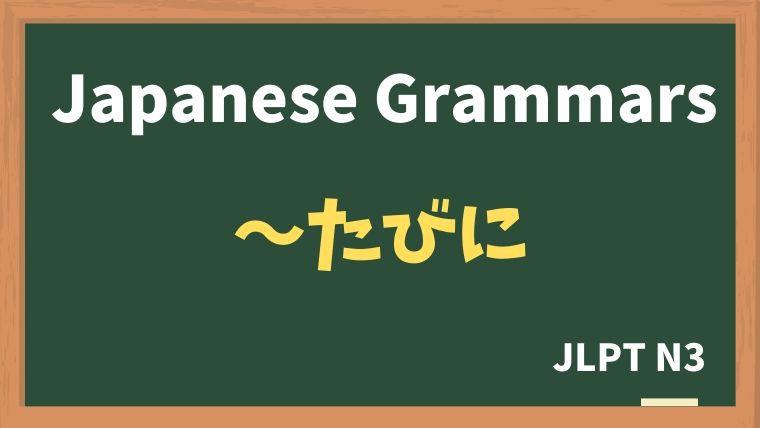
Explanation:〜たびに
fa-check-circleMeaning
"whenever / every time / each time."
Used to indicate that something happens every time a particular event occurs
It expresses admiration, frustration, and other such emotions about the same result occurring whenever a certain situation takes place.
fa-check-circleForm
V(dictionary form)+ たびに
N + のたびに
fa-check-circlePoints
- Repetition: "〜たびに" is used to express an event or action that repeatedly occurs whenever a certain condition or action is met.
- No Exception: This expression implies that the event happens without fail each time the condition is met.
- Attaches to Verbs and Nouns: It’s commonly used with verbs and sometimes with nouns that have an event-related meaning.
fa-check-circleJLPT Level
N3
Sample sentenes
私は旅行のたびに、お腹をこわす。
Every time I travel, I get an upset stomach.
私はこの曲を聞くたびに、元気になります。
Every time I listen to this music, I become energetic.
二人はいつも会うたびに、ケンカしています。
Every time they meet , they always fight.
ジェシカさんは会うたびに、きれいになっていきます。
Every time I meet Jessica, she is becoming more beautiful.
トムさんは会うたびに、「お金を貸してください」と言ってくる。
Every time I meet Tom, he always asks me to lend him money
彼に会うたびに、元気をもらう。
Every time I see him, I feel energized.
買い物に行くたびに、無駄なものを買ってしまう。
Every time I go shopping, I end up buying unnecessary things.
旅行するたびに、新しい発見がある。
Each time I travel, I discover something new.
Vocabulary
| Japanese |
English | |
| 曲 | きょく | music |
| 喧嘩する | けんかする | to fight |
| 発見 | はっけん | discovery |






